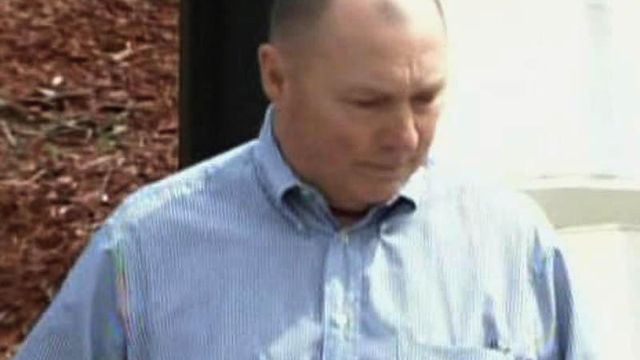Twenty-five years later, third trial begins in triple slaying
On May 9, 1985, Kathryn Eastburn was raped and stabbed to death in her Summerhill Road home in Fayetteville. Two of her three daughters, 3-year-old Erin and 5-year-old Kara, also were fatally stabbed in the incident.
On Wednesday, 14 Army officers and enlisted personnel began hearing evidence to determine whether Master Sgt. Timothy Hennis committed the crimes.
"The killer is among us," Capt. Nathan Huff, one of the military prosecutors in the case, said in opening statements as he pointed at Hennis.
Hennis, who was stationed at Fort Bragg in the mid-1980s, was convicted of murder during a 1986 trial in state court. The North Carolina Supreme Court later overturned the conviction, ruling that prosecutors had improperly used graphic crime scene photos.
After a second trial in 1989, Hennis was acquitted. He then finished out his service in the Army and retired to Washington state.
Local investigators continued to pursue the case, though, and several years ago, they found DNA evidence they say links Hennis to the slayings.
Because of double jeopardy, he couldn't be tried again in state court, so the Army recalled him to active duty in late 2006 to try him in military court.
Hennis bought a dog from the Eastburns a few days before the killings, Huff told jurors, and the soldier returned to attack Kathryn Eastburn.
Huff described the horrific crime scene, noting that Erin Eastburn's throat was cut and that Kathryn Eastburn was stabbed 15 times in the chest.
"As she lay there on the floor helpless, with her three children in the home and her husband 500 miles away, the accused raped her," he said.
Jana Eastburn, who was 22 months old at the time, was left unharmed in her crib. Air Force Capt. Gary Eastburn was at training school in Alabama when his wife and daughters were killed.
"It was just Jana, and (the killer) left her there in that crib without food, without water, without someone to change her diaper. Baby Jana stayed trapped in that crib for two days," Huff said.
Hennis' sperm was found on Kathryn Eastburn's body, Huff said, but Lt. Col. Kris Poppe, one of the military attorneys representing Hennis, countered by saying the sample of DNA was small and unreliable.
“The smaller amount of DNA, the bigger the problem,” Poppe told jurors, adding that authorities can't prove the sample hadn't been tampered with since Hennis' 1989 trial.
Poppe noted in his opening statement that no other forensic evidence, such as blood, connects Hennis to the crime scene. He also said that Hennis has been cooperative with investigators, which isn't the behavior of someone who is guilty.
"The attacker would have been saturated in blood. There is no evidence that Master Sgt. Hennis was in any way involved in a very bloody murder," he said.
Huff said a composite sketch of the suspect in the Eastburn slayings looks remarkably similar to an old photo of Hennis.
Gary Eastburn was the first witness to testify in the case, and he repeatedly choked up and wiped away tears while recalling details about the killings.
"She was very outgoing," he said of his wife. "A very pleasant person. A great mother. The love of my life."
He called Kara "the brains of the family" and said Erin "couldn't do anything wrong."
Eastburn said he became concerned when he couldn't reach his wife on May 10, 1985 – they spoke by phone every Saturday – so he asked a neighbor to check on the family. The following morning – Mothers Day – a homicide detective called him.
"He wouldn't give me any details about a death in the family. He said I needed to come home," Eastburn testified.
Now 52, Hennis has maintained that the Army doesn't have the authority to try him for the slayings. His attorneys argued in federal court in Raleigh last month that because the Army discharged Hennis, it couldn't now try him for any crimes committed while he was in the service.
U.S. District Judge Terrence Boyle ruled Tuesday that it would be inappropriate for him to decide that issue with a court-martial in progress, so he allowed the case to continue through the military judicial system.
The trial is expected to last up to two months, with as many as 120 witnesses.











